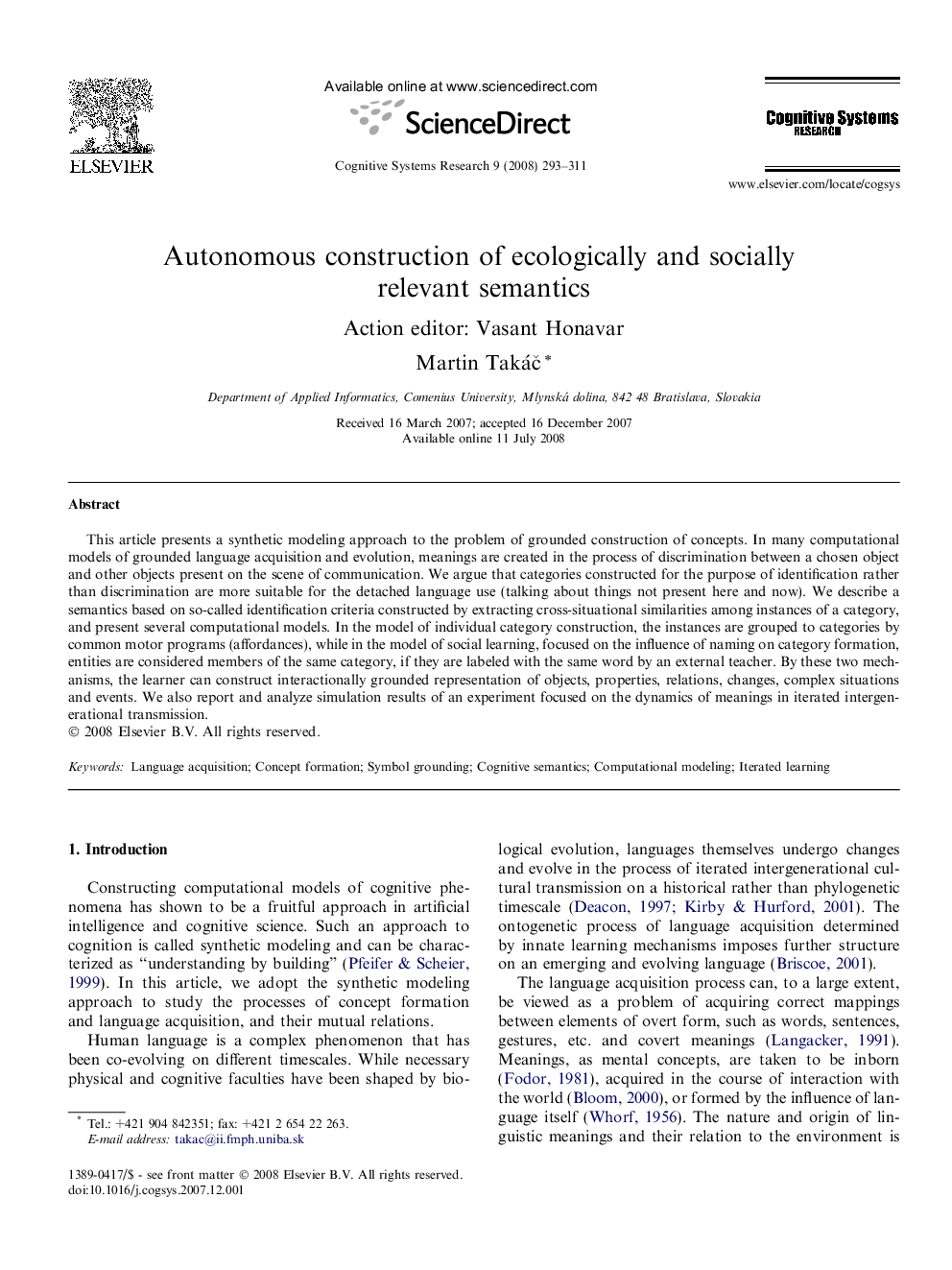| Article ID | Journal | Published Year | Pages | File Type |
|---|---|---|---|---|
| 378655 | Cognitive Systems Research | 2008 | 19 Pages |
This article presents a synthetic modeling approach to the problem of grounded construction of concepts. In many computational models of grounded language acquisition and evolution, meanings are created in the process of discrimination between a chosen object and other objects present on the scene of communication. We argue that categories constructed for the purpose of identification rather than discrimination are more suitable for the detached language use (talking about things not present here and now). We describe a semantics based on so-called identification criteria constructed by extracting cross-situational similarities among instances of a category, and present several computational models. In the model of individual category construction, the instances are grouped to categories by common motor programs (affordances), while in the model of social learning, focused on the influence of naming on category formation, entities are considered members of the same category, if they are labeled with the same word by an external teacher. By these two mechanisms, the learner can construct interactionally grounded representation of objects, properties, relations, changes, complex situations and events. We also report and analyze simulation results of an experiment focused on the dynamics of meanings in iterated intergenerational transmission.
